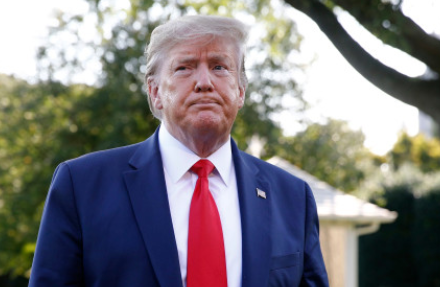History, Charges, Implications of Impeachment

December 18, 2019
With the House set to vote on articles of impeachment against President Trump, the threat of an early end to the Trump presidency looms large.
Impeachment is a long-standing tradition in the United States, with its earliest use dating back to the 1860s, when Andrew Johnson, Southern Democratic successor to Abraham Lincoln, narrowly escaped removal from office by one vote.
Since then, only two other presidents have faced serious impeachment threats—Richard Nixon and Bill Clinton. That is, of course, until now.
The very idea of impeachment dates back to the Kingdom of Great Britain, where parliament held the right to “impeach” princes, lords and nobles from the monarchy in order to restrict their power.
Since parliament could not impeach the king or queen from their hereditary office, they would often impeach royal ministers as a “check” on the monarchy’s power.
Impeachment was reserved for the worst of offenses, and when writing the US constitution in 1787, the founding fathers made the decision to adopt that process for all federal office holders in the United States, hanging the threat of impeachment over the heads of everyone from the President to a congressman.
Now that this is out of the way, it’s time to discuss the trial being brought forth against President Trump.
Just last week, the House Judiciary Committee finalized two articles of impeachment against President Trump—“abuse of power” and “obstruction of Congress.”
The first article comes after the inquiry into the president’s foreign dealings revealed he withheld military aid from the Ukrainian government until they promised to reopen investigations into former Vice President Joe Biden’s son, Hunter Biden, who served on the board of Burisma, a Ukrainian oil company notorious for its shady business dealings, all while Biden held no distinct qualifications for the position aside from his name.
The revelations drew criticism from both sides of the aisle, and both arguments hold water.
Did Hunter Biden benefit from his father’s position as Vice President?
Absolutely.
In fact, he has come out and said so.
However, is it right to pressure a foreign government, currently locked in a war with Russia, to investigate an already settled suit, with the hopes of gaining some political “points” back home, all while withholding valuable military aid?
Absolutely not.
The second article comes from the repeated attempts to skirt Congressional authority.
To say that Trump has been uncooperative with impeachment proceedings would be a gross understatement.
He has consistently ordered his cabinet to disregard congressional subpoenas and has claimed executive privilege over much of the most “damning” evidence in the impeachment process, understanding that the House simply doesn’t have the time to fight a long series of court battles just to get the chief of staff and secretary of defense in front of Congress.
Now, impeachment is an inherently political act.
Truly, an act is only impeachable if the House has the votes to make it so.
This, however, does not make it arbitrary.
Impeachment is the greatest weapon the legislative branch holds against an abusive executive, and at this moment, it would seem like the facts are on the Democrats’ side.
The purpose of impeachment is not personal punishment, but instead to protect the broader public from a leader who is deemed unfit to serve in his office, whether it be a president, judge, or congressman.
In a presidency scarred by uncertainty, criminal indictments and an extraordinary lack of favorability, impeachment (and removal) may just be the remedy to restore the public’s faith in the office once more.









































